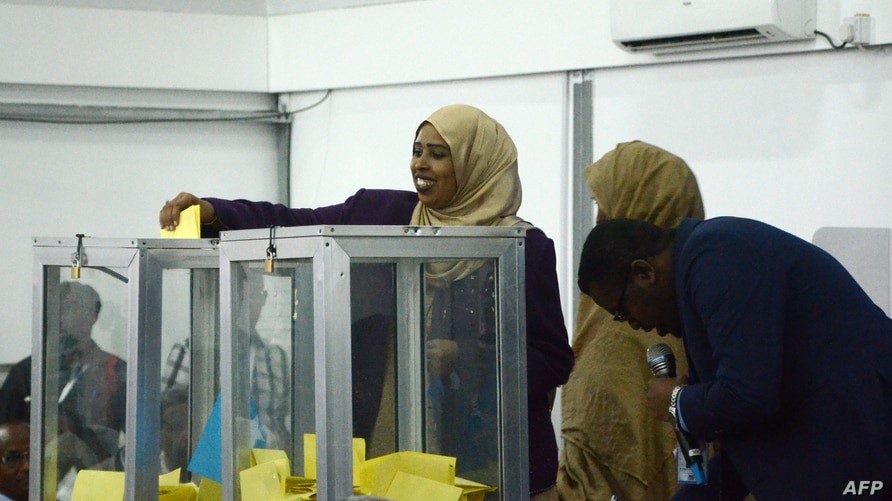Somalia has postponed elections that were due to start on Sunday after months of delays officials announced.
Indirect parliamentary and presidential polls were due to open on July 25 with four days of voting for the upper house by state delegates. The election cycle was due to end with a presidential poll on October 10.
“Even though the plan was the upper house election to start around the various states today, there is a delay, the election may not take place as planned,” a member of the electoral commission told AFP on condition of anonymity.
The delay was due to the fact that federal regions were neither able to submit candidates’ lists in time, nor to form local committees to cast the ballots, the source added.
A spokesman for the federal government, Mohamed Ibrahim Moalimu, said that the elections were “postponed,” without providing details.
Somalia was plunged into an unprecedented constitutional crisis early this year, when President Mohamed Abdullahi Mohamed and the leaders of Somalia’s five states were unable to agree on the terms of a vote before his term lapsed in February.
After months of stalemate that at times turned violent, the political leaders finally agreed last month on a voting timetable.
According to the agreed plan, delegates from the five federal states, chosen by various clans in that state, elect parliamentarians, who then elect a president. The process was due to kick off on Sunday.
The sole state that was capable of carrying out a vote “during the week” was Jubaland. According to one source, the state has already chosen its delegate committee and could publish a list of candidates “during the week.”
“We are expecting the election to take place soon,” said Mohamed Adan, a senior government official in Jubaland. Another source said the electoral process could kick off in the state later on Sunday.
In Puntland state, sources said that the elections were delayed because of “technical reasons.”
In Galmudug state, the local parliament is on a break and will reconvene in early August.
In South-West state, the process is blocked because the regional president is out of the country.
The ballots follow a complex indirect model whereby special delegates chosen by the country’s myriad clan elders pick lawmakers, who in turn choose the president.
The upper house vote will be followed by elections for the lower house from September 12 to October 2, according to an updated timetable issued last week.
According to a statement issued in June, both assemblies were due to convene to vote for the president on October 10, but no date for this election was given in the updated timeline.
Somalia has not held a direct one-person, one-vote election since 1969, the year Siad Barre led a coup and went on to rule for two decades.
Barre’s military regime collapsed in 1991 and Somalia sank into anarchy.

